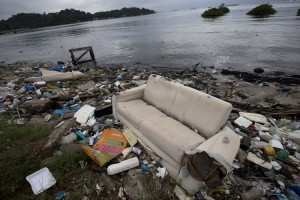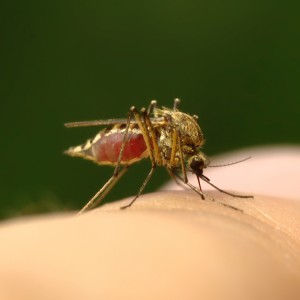Brazil Challenged From All Sides
Tuesday, March 15th, 2016March 15, 2016

Sao Paulo, Brazil, March 13, 2016. Brazilians take to the streets to demand the impeachment of President Dilma Rousseff and the arrest of former President Lula, who is accused of corruption. Credit: © Will Rodrigues, Shutterstock
Brazil has had a difficult year. On Sunday, March 13, more than a million Brazilians protested in the streets nationwide. Those Brazilians—most wearing the yellow color associated with the national flag and soccer team—were protesting against the nation’s president, Dilma Rousseff. Brazilians are angry with the government for a number of reasons. For two years, the nation has watched a corruption scandal unfold. The state-run oil company, Petrobras, has been caught handling bribes. In early March, a Brazilian judge sentenced Marcelo Odebrecht, the one-time head of Brazil’s largest construction company, to 19 years in prison for bribing senior executives at Petrobras. This money was then funneled through Petrobras to Brazilian politicians for campaign funds. Charges of corruption have not reached President Rousseff, but prosecutors are seeking the arrest of her predecessor and ally, Luiz Inácio Lula da Silva, concerning bribes that benefited his party.
Brazil has also been in an economic recession since the end of 2014. Last year, its economy contracted by almost 4 percent. Currently, Brazil’s inflation rate is over 10 percent and its unemployment rate is 9 percent. Working class Brazilians are struggling—Brazil’s economy has not been this weak since the 1930′s.
The Zika virus has also hit Brazil hard, both financially and emotionally. The outbreak of this mosquito-borne virus began in Brazil in April 2015. It had been endemic to Africa and Asia for decades, and it was thought to cause a relatively mild illness. Only when the outbreak began in Brazil did researchers begin to notice a possible correlation between Zika and microcephaly—unusually small head size in infants, which can hinder brain development. Brazil, which had reported some 200 cases of microcephaly in 2014, reported more than 4,000 cases over the last 12 months. Researchers are working to find the link between the virus and microcephaly. Doctors at the U.S. Centers for Disease Control and Prevention (CDC) were concerned enough about the link to advise pregnant women not to travel to Rio de Janeiro, Brazil, for the 2016 summer Olympics.
All of these problems have hit Brazil hard financially, and that has hindered Brazil’s preparations for the Olympic Games, which will be held in August. For example, Brazil had promised International Olympic Committee (IOC) officials that they would clean up Guanabara Bay, a large bay connected to the Atlantic Ocean that is heavily polluted with sewage and garbage. Canoeing, rowing, sailing, and swimming events will all take place in this bay or adjoining rivers. Brazil is too strapped for cash to make any real headway on an environmental cleanup of this size in the amount of time remaining before the Olympic Games.

A discarded sofa litters the shore of Guanabara Bay in Rio de Janeiro, Brazil. As part of its Olympic bid, Brazil promised to build eight treatment facilities to filter out much of the sewage and prevent tons of household trash from flowing into the Guanabara Bay. Only one treatment facility has been built. Tons of household trash line the coastline and form islands of refuse. Credit: © Silvia Izquierdo, AP Photo
Other Behind the headline articles
- Travelers Warned of Zika Virus (January 19, 2016)
- WHO Declares Global Zika Virus Emergency (February 3, 2016I
(January 19, 2016)



